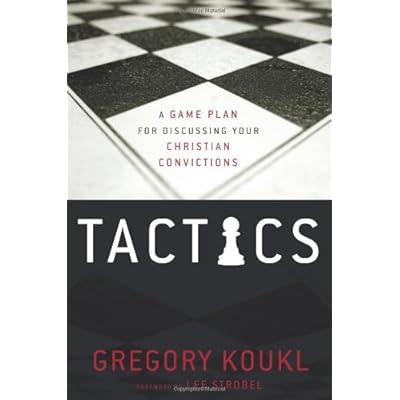For the James Brown song "I feel good" there is a video at the end!
A warning: this post might require a bit of brain engagement, but the rewards of doing so are worth the effort. Here we go!
My reasons to eat
The way my deliberate life works out in things nutritional is that I eat for the following reasons (in no particular order):
- To enjoy what I am currently eating in the moment - every mouthful
- To have what I crave, when I crave it
- To be able to control what I crave so that I don’t feel guilty after eating
- To feel satisfied after eating, not hungry, not craving anything bad, e.g. sweetness
- To be able to stay active, fuelling for the exercise I love to do
- To be healthy for life, by taking in a good balance of nutrients and not adding to my waistline
- To be stress free (including stressing over cravings)
A lot of people also try to eat to be healthy but are usually misinformed about how to eat to accomplish this, or they are ill-disciplined in their approach. Hopefully there are a few useful tips here to help overcome these two problems. I have had, and continue to battle them in myself. I want to be clear about that. But having dropped from 130kg+ down to an average of about 95kg (maintained over the last 2 years), I think I’ve worked out a few things that can help - and I really want to help.
Why you should start being deliberate today
Because the things you eat have a huge impact on your emotions, energy, stress, concentration, and more, you must consider your nutrition deliberately and carefully if you have any goals in life that come under mental or physical (or even spiritual) categories. It sounds like this will turn out to be complex, but really it’s quite simple to make some major changes, and these changes will have such an effect that you should be inspired to make even more positive changes in your diet.
Achieving goals, or just feeling great, no matter what age you are, is entirely achievable. And the quicker you make a start, the sooner you will see more happiness and enjoyment in life.
Some quick ideas to get you started
I suggest choosing two or three of these ideas to try first, then come back after a few weeks to assess your progress. Some people will have more lasting habit changes by bookmarking and re-reading this every week. Others will prefer to make a written note and stick it up in an obvious place (I’ve found it helpful to make desktop backgrounds with goals and long-term reminders incorporated).
Idea 1 - Start thinking about food as a pharmaceutical drug that controls your hormones (which control your mood and your energy level). Anything that spikes your energy requires you to come down from that spike - a low in energy and a resulting low mood.
Foods that make your energy spike include sugar, bread, potatoes, pasta, cereal, any other white/starchy carbohydrates, sugary fruit, fruit juice.
Idea 2 - There’s a difference between a mental and a physical craving. If you decide you feel like something sweet, first pause and work out where it is coming from. I find it helps to become consciously aware of my taste buds and to imagine what the response in my mouth will be if I put something sweet on my tongue.
If I decide my sweetness craving is physical, then I have the healthiest options I can. My first preference is natural and unprocessed honey - I savour a teaspoon full in my mouth and then reassess my craving. Sometimes a small piece of sweet fruit will do, e.g. a peach or strawberry. In the absence of honey or fruit, a small glass of diet coke with it’s evil artificial sugar. While this isn’t ideal, it is better than some refined sugar in lollies or biscuits.

Idea 3 - Stress is a killer that makes you crave sweetness. Unsatisfied craving for sweetness can lead to more stress than it’s worth which is why you should keep some honey nearby. I firmly believe it is better to binge on honey than on giant jellybeans (my nemesis sweet). Honey satisfies much quicker too.
Idea 4 - Drink plenty of water but spread it out rather than having it all in one big hit.
Idea 5 - You shouldn’t feel very hungry between meals if you eat this way but spreading out your food into smaller meals every three or four hours is good.
Idea 6 - Eat before you are hungry to prevent overdoing it with a panic-sized meal. Try to limit meals to 2000KJ (approx 500 calories)
Idea 7 - Of the foods that are okay to eat, find something reliable and have plenty of that around. The more thinking you have to do about what to eat, the harder it is to stick to an eating routine that will work for you. I have two or three quick and reliable meals, and another two or three quick foods which usually stop me craving. The more I crave food (of whatever kind) the more likely I am to misinterpret that craving as a desire for sweet.
My reliable foods/meals to eat as much of as I want are:
Tuna (plain chunky in spring water - drained) + four bean mix (from a can with no chickpeas - drained and rinsed also) + salt + extra virgin olive oil + balsamic vinegar. Variations can remove the beans and add veges (cucumber + tomato). This is a large-ish meal for me now and I usually have half only, saving the other half for another time.
Scrambled eggs - Extra virgin olive oil or butter in a pan + two to five eggs (depends how hungry I am) + salt. A cup of mixed veg on the side if you want a little more colour on your plate.
Coffee with cream (liquid, unprocessed, pouring cream). I usually make my coffee weak and I am moving to decaff.
Cheese, unprocessed of course. I prefer mild cheddar or another harder cheese.
Cream (as above in my coffee) straight from the bottle. This is a good top-up for me because I love fresh cream but it is rich enough that I can’t take too much before I feel satisfied.
Mixed vegetables.
There you go
I hope there is something of use here to help you become a more deliberate eater.
If there is one main idea to take away it is that we should eat not just for the immediate rewards, but also for the mid-term and long-term rewards. Rather than feeling bad shortly after finishing your meal, whether due to guilt or a low in energy, you can eat in such a way that you feel good all day and every day into the foreseeable future.

All the best! (and don’t forget to let me know how it goes)
PS - Eating this way can help prevent diabetes and many inflammatory diseases.
PPS - Take a quality fish oil supplement that is high in EPA. This is essential if you are an athlete.
And James Brown:

Foods that make your energy spike include sugar, bread, potatoes, pasta, cereal, any other white/starchy carbohydrates, sugary fruit, fruit juice.
Idea 2 - There’s a difference between a mental and a physical craving. If you decide you feel like something sweet, first pause and work out where it is coming from. I find it helps to become consciously aware of my taste buds and to imagine what the response in my mouth will be if I put something sweet on my tongue.
If I decide my sweetness craving is physical, then I have the healthiest options I can. My first preference is natural and unprocessed honey - I savour a teaspoon full in my mouth and then reassess my craving. Sometimes a small piece of sweet fruit will do, e.g. a peach or strawberry. In the absence of honey or fruit, a small glass of diet coke with it’s evil artificial sugar. While this isn’t ideal, it is better than some refined sugar in lollies or biscuits.

Idea 3 - Stress is a killer that makes you crave sweetness. Unsatisfied craving for sweetness can lead to more stress than it’s worth which is why you should keep some honey nearby. I firmly believe it is better to binge on honey than on giant jellybeans (my nemesis sweet). Honey satisfies much quicker too.
Idea 4 - Drink plenty of water but spread it out rather than having it all in one big hit.
Idea 5 - You shouldn’t feel very hungry between meals if you eat this way but spreading out your food into smaller meals every three or four hours is good.
Idea 6 - Eat before you are hungry to prevent overdoing it with a panic-sized meal. Try to limit meals to 2000KJ (approx 500 calories)
Idea 7 - Of the foods that are okay to eat, find something reliable and have plenty of that around. The more thinking you have to do about what to eat, the harder it is to stick to an eating routine that will work for you. I have two or three quick and reliable meals, and another two or three quick foods which usually stop me craving. The more I crave food (of whatever kind) the more likely I am to misinterpret that craving as a desire for sweet.
My reliable foods/meals to eat as much of as I want are:
Tuna (plain chunky in spring water - drained) + four bean mix (from a can with no chickpeas - drained and rinsed also) + salt + extra virgin olive oil + balsamic vinegar. Variations can remove the beans and add veges (cucumber + tomato). This is a large-ish meal for me now and I usually have half only, saving the other half for another time.
Scrambled eggs - Extra virgin olive oil or butter in a pan + two to five eggs (depends how hungry I am) + salt. A cup of mixed veg on the side if you want a little more colour on your plate.
Coffee with cream (liquid, unprocessed, pouring cream). I usually make my coffee weak and I am moving to decaff.
Cheese, unprocessed of course. I prefer mild cheddar or another harder cheese.
Cream (as above in my coffee) straight from the bottle. This is a good top-up for me because I love fresh cream but it is rich enough that I can’t take too much before I feel satisfied.
Mixed vegetables.
There you go
I hope there is something of use here to help you become a more deliberate eater.
If there is one main idea to take away it is that we should eat not just for the immediate rewards, but also for the mid-term and long-term rewards. Rather than feeling bad shortly after finishing your meal, whether due to guilt or a low in energy, you can eat in such a way that you feel good all day and every day into the foreseeable future.

All the best! (and don’t forget to let me know how it goes)
PS - Eating this way can help prevent diabetes and many inflammatory diseases.
PPS - Take a quality fish oil supplement that is high in EPA. This is essential if you are an athlete.
And James Brown:






